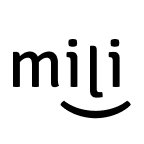How to ace your YC interview
Spring has sprung, and the smell of fresh YC applications is in the air. It’s that special time that happens twice a year where thousands of budding entrepreneurs vie for a spot in the upcoming Y Combinator class.
For those among you who are preparing for your interviews over the next few days, I wanted to share some of the best practices that helped Andrew, Nate, James and me pass our interview and earn URX’s place in the Summer 2013 batch.

Quick, concise answers are key
Each interview lasts about 10 minutes and the interviewers’ goal is to get as much signal about the team as possible. Because of this, the interviews are structured as a series of rapid fire questions that will cover a lot of ground. Having well prepared, concise answers that you can recall quickly is probably the single strongest indicator of success for your interview. We prepared for this by coming up with a list of ~50 expected questions, each with their own with 2–3 bullet point response. Then, we spent hours grilling each other and loaded them into a flashcard webapp for self testing. This took some time, but was well worth it.
Know your 5 points, and make sure you speak to them
In any interview, it’s crucial that your personal narrative shines through. Unfortunately, the rapid fire nature of YC interviews makes this difficult. In your prep, it’s crucial that you identify the 3-5 most important points about your business/team that you need the YC interviewers to hear. These can be things about your backgrounds, user growth, revenue, or the like, and together should tell the best version of your story. For our team, these were: 1. We’ve known each other for a long time, and have lots of experience in the space. 2. We’ve already built the first version of our product 3. We already have customers 4. We know what we want to get out of YC
We entered our interview with these points ingrained into our heads, and it was my personal mission to make sure we hit on each of them. Sometimes, this was straightforward because the interviewer would ask a related question. Other times, this was more difficult but overall really helped us guide the conversation in the way we wanted it to go.
Each panel’s style is different, but be ready to get grilled
Our interview panel consisted of Sam Altman, Geoff Ralston and Garry Tan. From the moment we walked in the room (before we even sat down!) we started getting grilled. I’ve heard some people describe the interviews as being a bit of a “stress test” seeing how you deal with highly intense situations. Each interview panel is different, and you should expect the style of the interview to be tailored to the people delivering it. Some are more “lean in”, while others are a bit more passive. The substance of the interviews is the same, so if you’re really prepared it shouldn’t matter too much who interviews you.
Be a master of your own domain
The YC partners are one of the most intelligent, experienced groups of people I’ve ever had the chance of working with. Generally speaking, no matter what domain you’re in, one of the YC partners will know at least as much — if not more — about it than you. As such, it’s crucial that you aren’t just a master of your own product, but the industry around it. This isn’t just true for your YC interview, but is important for your company’s overall success. Unfortunately, this isn’t something that you can “cram for” in a few day window, so if you’re green to your industry make sure you have a good story to tell.
Make sure everyone speaks
Y Combinator emphasizes the strength of the founding team above most other things. As such, it’s crucial that each member of the team is equally prepared for the interviews. Everyone should have the chance to speak and should maintain the same level of polish. For us, we decided ahead of time who on the team would answer which sorts of questions, and agreed that I would answer any questions where it wasn’t clear who else should talk. Generally speaking, there will be one person that answers most of the time, but it’s important no one tries to, “run away with the show.” Teamwork in the interview is as important as it is in the office.
Have a demo, but don’t expect to show it
I’ve heard many people debate whether the interviews should include a demo or not. The general convention is that the partners are more interested in hearing people talk about the thing, as opposed to seeing the thing itself. That said, there seems to be no consistency as to whether a team actually gets to show a demo. In our case, we were introducing a new concept that was too abstract for most people to understand so we had a <30 second demo in place to make it clear exactly what we were talking about. We were able to show it, but only after trying about 3–4 times :). So, don’t rely on your demo as a crutch to tell your story.
The YC interview process is as challenging as it is invigorating, and I hope these 6 tips help you in your journey. Questions/feedback? Find me on Twitter @jmilinovich
